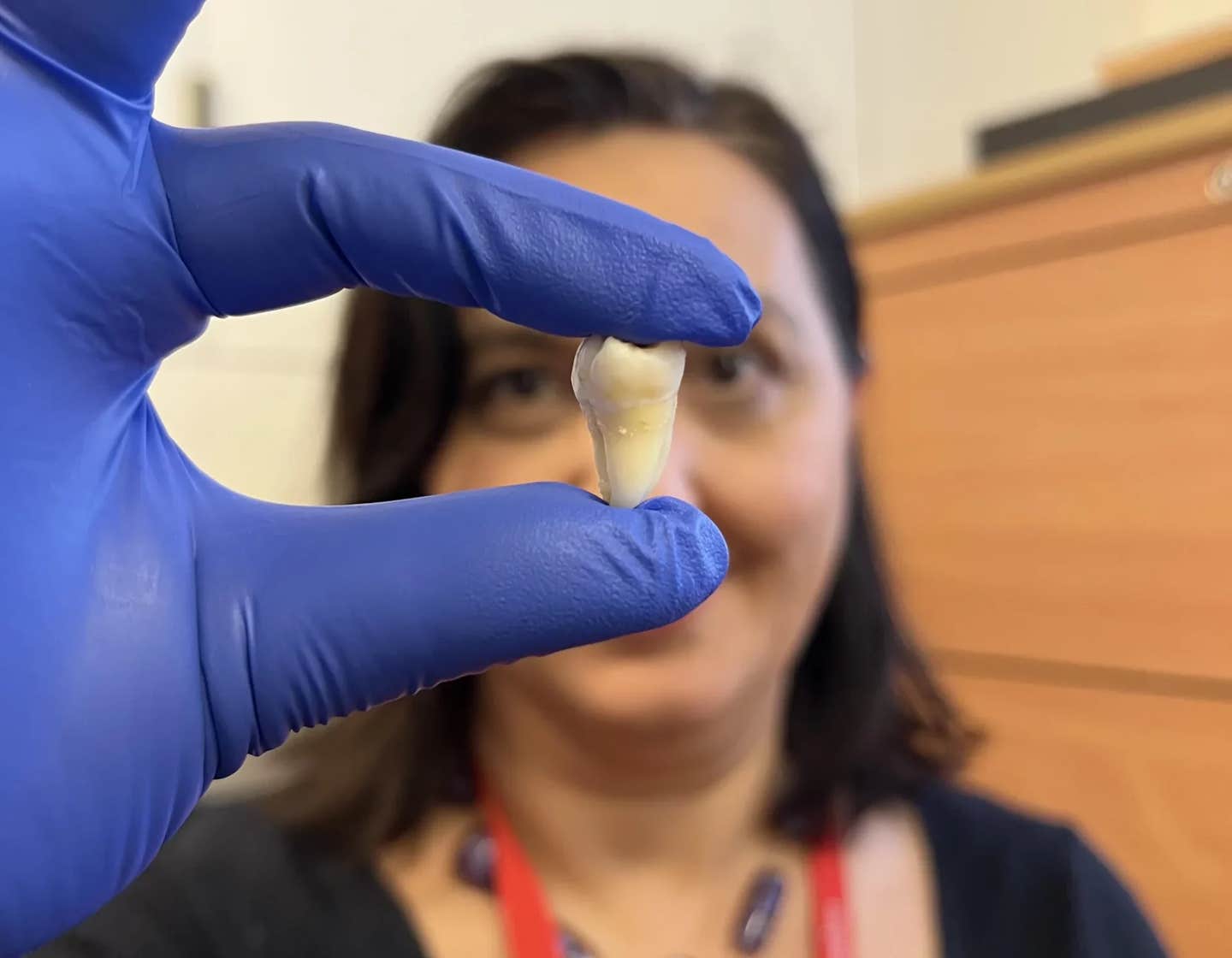New drug lowers brain pressure to treat blinding headaches
‘Blinding’ headaches known as Idiopathic Intercranial Hypertension could be treated with an injectable peptide used for type 2 diabetes.

[Mar. 14, 2023: Tim Mayo, University of Birmingham]
The trial also saw significant reductions in the numbers of headaches across the 12 weeks that participants took part. (CREDIT: Creative Commons)
Patients with ‘blinding’ headaches known as Idiopathic Intercranial Hypertension (IIH) could be treated with an injectable peptide used for type 2 diabetes, a new trial has found.
The study, published in the journal Brain, reports on a phase two trial of a drug called exenatide, a GLP-1 receptor agonist, as a potential treatment for IIH.
The IIH Pressure Trial led by a team of neurologists from the University of Birmingham and University Hospitals Birmingham found that for the seven patients who received regular injections of the drug, currently approved for use in Type 2 Diabetes, led to a drop in pressure in the brain during both short (2.5hrs and 24hrs) and long term (12 weeks) measurements.
The trial also saw significant reductions in the numbers of headaches across the 12 weeks that participants took part, with an average of 7.7 fewer days per month of headaches compared to the baseline, compared to only 1.5 fewer days in the placebo arm.
Alex Sinclair is Professor of Neurology in the Institute of Metabolism and Systems Research at the University of Birmingham, an Honorary Consultant Neurologist at University Hospitals Birmingham NHS Foundation Trust, and Principal Investigator of the study. Professor Alex Sinclair said:
Related News
“This is a major trial for the rare and debilitating condition IIH that can lead to people, usually women, going blind and suffering disabling daily headaches. There are no current licenced drugs to treat IIH and hence this result is a major step forward for IIH patients.
“We are delighted to see that the phase two trial resulted in our treatment group having lower brain pressure both immediately and after 12 weeks and nearly 8 fewer headache days across the 12-week period, and that all the women were able to continue the treatment throughout with few adverse effects. We now hope to see a much larger trial of exenatide to literally ease the pressure for the many people around the world suffering with IIH.”
Shot in the arm for IIH treatment
Idiopathic Intracranial Hypertension (IIH) is a debilitating condition that raises pressure in the brain and can lead to chronic headaches and even permanent sight loss. The illness, which often leaves patients with a reduced quality of life, predominately affects women aged 25 to 36 and weight gain is a major risk factor of developing IIH and relapses of the disease.
Once regarded as rare, incidence of IIH is now rising dramatically in line with the global rise in obesity and there has been a 350 per cent rise in incidence in last 10 years. Currently there are no licenced drugs options and existing medications used off label are complicated by troublesome side effects.
A key finding was the rapid action of the drug, with results indicating that brain pressure was significantly reduced within two and half hours of taking the medication. This rapid onset of action is vital in a condition which can cause rapid blindness if left untreated.
Rebecca's story
While some of us feel a little lightheaded when we bend down, Rebecca Marsh found that she would temporarily lose all vision. Seven years ago, Health Care Assistant and mum of one Rebecca was suffering from daily headaches and temporary vision loss which prompted her to get an eye test to find out what was going on.
A CT scan and lumbar puncture later, 32-year old Rebecca was told that the vision loss and headaches were symptoms of Idiopathic Intercranial Hypertension (IIH), a rare and currently untreatable disease that can leave people with permanent sight loss.
Rebecca explained that receiving the diagnosis was “overwhelming, unexpected and triggered some anxiety. After attending a headache clinic and being referred to specialists that's when I found doctors who had a real understanding of my condition.”
“I cut my work hours down to begin with, and stopped doing night shifts. I've now moved to an admin type role too. I feel this helps my migraines and smaller movement helps too.”
Rebecca was one of a group of participants who took part in the trial to test whether exenatide would alleviate the symptoms she was experiencing.
“The research did take up a lot of time however it felt good being a part of something that could improve treatment in the long term.”
Study results
Dr James Mitchell, Lecturer in Neurology at the University of Birmingham and first author of the paper said:
“The results of this clinical trial are a shot in the arm for finding clinical treatments for IIH. While we need to do further trials before such a treatment could be available for patients in the future, we are encouraged by the significant results from this trial that made a real difference for those in the treatment arm and this treatment may prove relevant for other conditions resulting in raised brain pressure.”
In this study the drug was given as a twice daily injection into the subcutaneous tissue. To reduce the need for frequent injection in the future a once weekly subcutaneous injection called Presendin will be trialled though University of Birmingham Start-up company, Invex Therapeutics.
Shelly Williamson, the Chair of patient charity IIH UK said:
“This is such exciting progress. New drug options is vitally important for IIH and this trial brings hope to the millions of patients living with the condition. We very much look forward to the next steps and seeing the drug tested in two large Phase 3 clinical trials.”
The IIH Advance is a Phase 3 clinical trial in Adolescents run in the UK, sponsored by the University of Birmingham and IIH Evolve is running in adults internationally sponsored by Invex Therapeutics. Ultimately the aim is to gain enough evidence to allow the drug to be licensed for use in IIH patients in the future.
For more science and technology stories check out our New Discoveries section at The Brighter Side of News.
Note: Materials provided above by the University of Birmingham. Content may be edited for style and length.
Like these kind of feel good stories? Get the Brighter Side of News' newsletter.
Joseph Shavit
Head Science News Writer | Communicating Innovation & Discovery
Based in Los Angeles, Joseph Shavit is an accomplished science journalist, head science news writer and co-founder at The Brighter Side of News, where he translates cutting-edge discoveries into compelling stories for a broad audience. With a strong background spanning science, business, product management, media leadership, and entrepreneurship, Joseph brings a unique perspective to science communication. His expertise allows him to uncover the intersection of technological advancements and market potential, shedding light on how groundbreaking research evolves into transformative products and industries.



